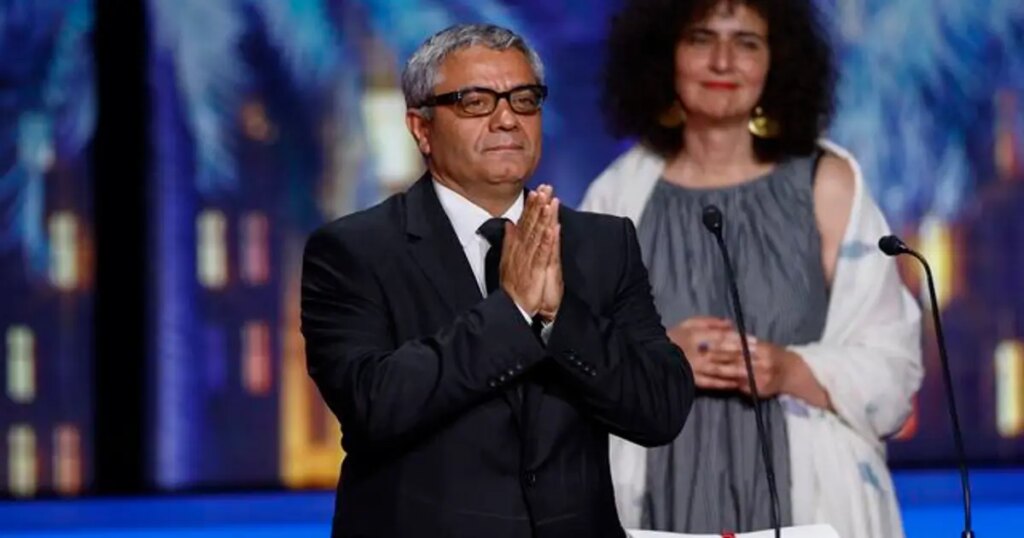At the Cannes Film Festival awards ceremony, Iranian dissident film director Mohammed Rasoulof, who won a special prize at the festival, told audiences that the Iranian people were being held hostage.
Rasoulof, who recently fled Iran after serving an eight-year prison sentence, won the prestigious festival's special award for best screenplay for his latest film, “The Sacred Fig Seed,” at Friday's ceremony.
After receiving the award, Rasoulof said: “I am very happy to receive this award. At the same time, my heart goes out to the Iranian people, who wake up to disaster every day, every hour, every morning.”
“The Iranian people are being held hostage,” he added.
Rasolov also spoke of the many dissident artists and writers who suffer under the rule of “tyrannical and repressive regimes.”
He was referring to Iran's political prisoners, noting the young dissident rapper Toumaj Salehi, who has been sentenced to death.
The dissident filmmaker fled the country on foot through rugged mountainous terrain after years of threats and the confiscation of his passport.
Before he left the country, he was given a harsh sentence including eight years in prison, flogging, fines and confiscation of property for “signing statements and making films and documentaries” in what the Islamic Republic claims was “conspiracy to commit crimes against national security.”
After leaving Iran, Rasoulof spoke in a post on social media platform Instagram about the pressure he had faced from Iran's security services in recent years, saying friends, acquaintances and others had helped him leave the country.
In an interview with Iran International on the sidelines of the Cannes Film Festival, director Rasoulof elaborated on the film's main theme, which focuses on “an investigative judge at Tehran's Revolutionary Court who is plagued by distrust and paranoia amid intensifying political protests across the country and the mysterious disappearance of a gun.”
“I think the main issue is ‘commitment.’ My main objective is to see how the system works. [of the Islamic Republic] Who will enter and participate in this structure?
He added that, based on his own experience “dealing with judges, interrogators, investigators, etc.”, these people “have put their heads elsewhere” and are mere “believers” whose decisions are made by others.
Rasoulof further stressed that the concept of “devotion” is heavily symbolized within the Islamic Republic. He pointed to the example promoted by state propaganda, adding that within such governments there are individuals who fold their arms over their chest and preach obedience and devotion.
Regarding the oath that Iranian judges are required to take, which is also mentioned in the film, Rasoulof said, “It is very strange that at the end of the judges' oath they are asked to profess loyalty to the Islamic Republic and support its leaders. It is very strange that justice and human responsibility should be sacrificed to such demands.”
He added that such an oath can only be expected from the Islamic Republic, stressing that drawing up such an oath is characteristic of this government.
Moreover, Setareh Maleki, one of the film's actresses, who had to leave Iran with Rasoulof to attend the Cannes Film Festival, told Iran International that “the conditions for making this film were very, very strict.”
She added: “It was a lot harder than I imagined. We were a small group of about 30 people working on security, so each person had to do the work of several people, which made the job that much harder for everyone.”
The actress continued, “The work environment was full of stress and pressure. Everyone was constantly waiting for something to happen. At night, in our quarters, we thought tonight might be the night they were going to come and arrest everyone.”


